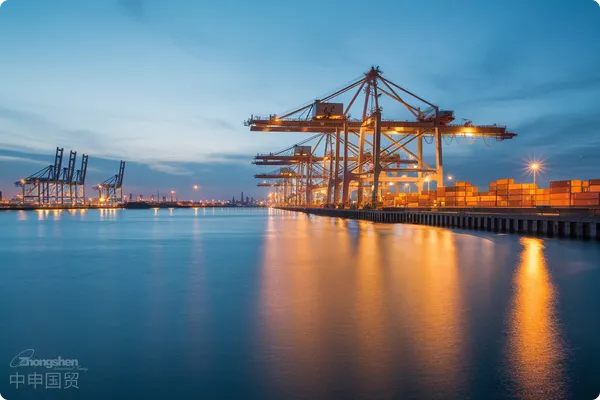- Shanghai Zhongshen International Trade Co., Ltd. - Two decades of trade agency expertise.
- Service Hotline: 139 1787 2118

Recently, Chinas Ministry of Finance and State Taxation Administration jointly issued an announcement, declaring adjustments to export tax rebate policies for certain products, effective December 1, 2024.Export DrawbackThe adjustments mainly include canceling export rebates for 59 products such as aluminum, copper, and chemically modified animal, plant, or microbial oils, and reducing rebates forsolar229 products, lowering the rate from 13% to 9%. This policy change aims to optimize the export rebate structure, promote high-value-added exports, and strengthen control over strategic resource exports.
According to the announcement, the main products affected by the rebate cancellation include aluminum, copper, and chemically modified animal, plant, or microbial oils, totaling 59 items. These adjustments will significantly impact Chinas aluminum and copper exports. Specifically, the cancellation covers 24 aluminum product codes, encompassing most domestic aluminum profiles, sheets, strips, foils, and rods. Aladdin data shows that Chinas aluminum exports totaled 5.287 million tons in 2023, accounting for 8.4% of annual production. From January to September 2024, affected aluminum exports reached approximately 4.62 million tons, representing 99% of total aluminum exports.
Wang Zhaohua, an analyst at Everbright Securities, noted that the cancellation of aluminum export rebates may negatively impact domestic and international aluminum price ratios in the short term. Specifically, it will increase export costs for aluminum producers, dampening export enthusiasm and increasing domestic supply, thereby lowering domestic prices. However, with limited overseas supply growth, international prices are expected to rise. In the medium to long term, Everbright Securities believes the adjustment mainly affects price relationships, with minimal impact on global aluminum supply and demand. Domestic aluminum prices remain upward-trending. Additionally, the rebate adjustment excludes high-value-added aluminum products, potentially incentivizing manufacturers to shift toward higher-value production, enhancing overall industry competitiveness.
For copper products, despite the rebate cancellation, the impact is limited due to Chinas relatively small export share. MySteel data shows that affected copper exports from January to September 2024 totaled 521,200 tons, up 23% year-on-year, accounting for only 3.2% of domestic production. Everbright Securities believes the cancellation will have minimal impact on the copper market, as companies can flexibly adjust export strategies to adapt.
Beyond aluminum and copper, rebates for 229 products, including solar panels, will be reduced from 13% to 9%. This aims to reduce subsidies for low-value-added exports and promote high-tech, high-value-added products. Industry analysts note that while short-term costs may rise, the long-term effect will enhance price competitiveness for high-end Chinese products overseas, driving innovation and value-added production.
The policy adjustment recalls a similar 2007 event when China canceled rebates for 2,831 products. Back then, aluminum alloy hollow profile exports fell 47% month-on-month but rebounded within months, surpassing pre-policy levels. This historical precedent suggests that while rebate adjustments may cause short-term disruptions, markets can self-adjust through production and export strategy shifts.
Analysts highlight that while the policy may pressure some firms short-term, promoting high-value-added exports will boost Chinas manufacturing competitiveness long-term. As global demand for high-tech, high-quality products grows, Chinese firms can leverage innovation and upgrades to expand market share and brand value.
Additionally, the policy will optimize and upgrade domestic supply chains. By reducing subsidies for low-value-added exports, firms will prioritize R&D and innovation, driving high-end, smart manufacturing. Government support for high-tech industries will also strengthen, improving the industrial ecosystem and fostering a more favorable business environment.
Against a complex global trade backdrop, Chinas rebate adjustment demonstrates strategic adaptability. The policy not only optimizes export structures and quality but also reflects Chinas commitment to national security and international obligations.
Overall, the Ministry of Finance and State Taxation Administrations rebate adjustment aims to upgrade domestic industries and respond to global market shifts. While some firms may face challenges short-term, the long-term effect will enhance the international competitiveness of Chinese exports, driving high-tech, high-value-added industries and sustainable economic growth.
Enterprises and relevant stakeholders need to closely monitor policy changes, promptly adjust export strategies, and optimize product structures to fully leverage policy benefits and achieve steady business growth. Meanwhile, relevant government departments should strengthen communication and coordination with enterprises, providing necessary support and guidance to ensure smooth policy implementation and maximize its positive effects.
Related Recommendations
? 2025. All Rights Reserved. 滬ICP備2023007705號-2  PSB Record: Shanghai No.31011502009912
PSB Record: Shanghai No.31011502009912









